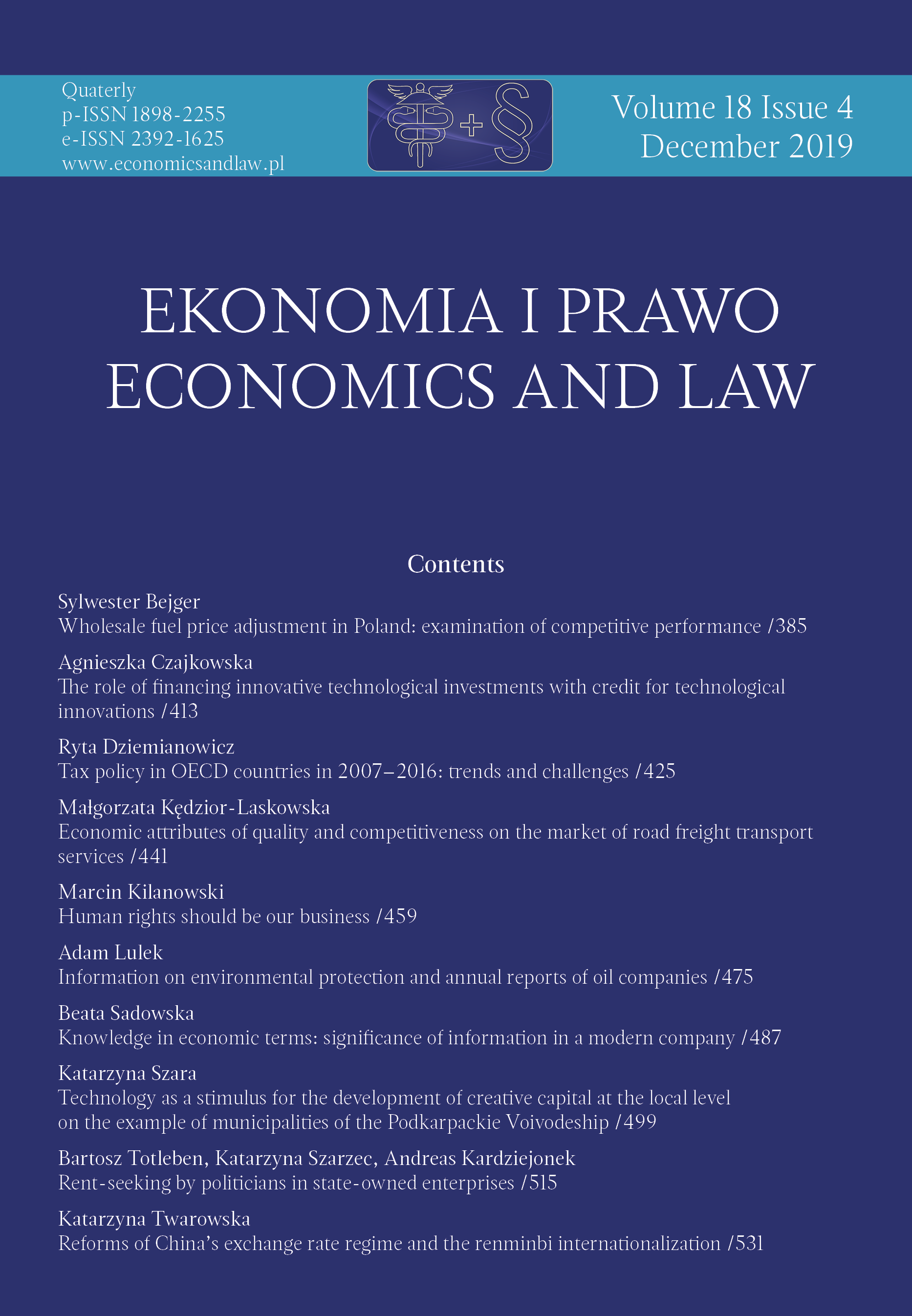Tax policy in OECD countries in 2007–2016: trends and challenges
Tax policy in OECD countries in 2007–2016: trends and challenges
Author(s): Ryta DziemianowiczSubject(s): Economy, Public Finances
Published by: Wydawnictwo Naukowe Uniwersytetu Mikołaja Kopernika
Keywords: tax policy; tax system; theory taxation
Summary/Abstract: Motivation: Taxation patterns vary from country to country. The shape of the tax policy was influenced by historical conditions, as well as changes in macroeconomic conditions. An example of this is the recent crisis, during which the measures taken in the area of discretionary tax policy often proved to be a good response to the problems of the economies and facilitated a faster return to the path of growth. At the same time, during the last century, the perception of the role of taxes in economic development changed radically, moving from a legitimate tool used by the state in the development process after World War II, through treating taxes as a ‘necessary evil’ at the turn of the century, to an instrument conditioning the maintenance of fiscal balance.Aim: The purpose of this article is to analyze the tax policies implemented in OECD countries, indicate similarities and differences in response to global conditions and identify general trends in the reform of tax systems. The analysis covered OECD countries in 2008–2017. The study utilizes the descriptive method with elements of statistical data analysis. The article was prepared on the basis of literature studies and OECD data.Results: Economic globalization has changed the dynamics of the legislation process and influenced decision making in the field of tax policy. Although decisions are still made by state parliaments, they not only reflect the needs of the budget, but also ensure the international competitiveness of the tax system and protect against fiscal erosion. It should be remembered, however, that the tax system is defined as a social agreement of sorts, which is concluded between the government and the society. The level and structure of taxation determine the specific ‘social balance’ achieved between the conflicting interests represented by the two parties to the agreement. This balance should not be disturbed solely in order to cover unitary shortfalls in public revenue in a given year.
Journal: Ekonomia i Prawo. Economics and Law
- Issue Year: 18/2019
- Issue No: 4
- Page Range: 425-440
- Page Count: 16
- Language: English

